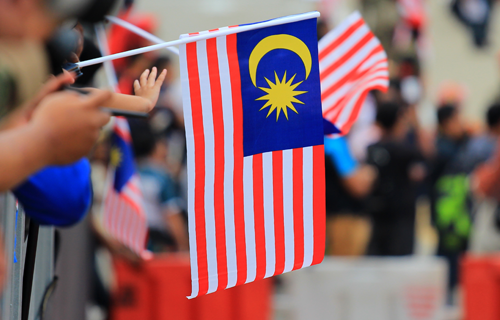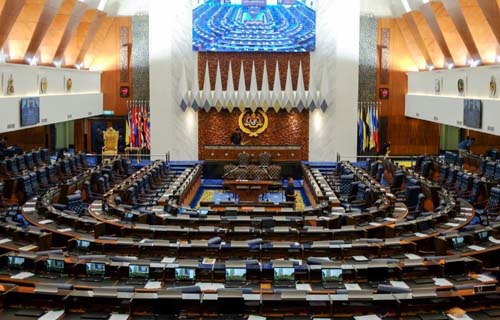The Great Emancipation of the Malaysian Youth, and Malaysia

Written by Yew Jun Hao, a member of Akar Umbi Kita, a programme for emerging advocates against racial discrimination by Architects of Diversity, Imagined Malaysia, IDEAS and the European Union. This article is published in conjunction with the International Day for the Elimination of Racial Discrimination.
The revolution for a better Malaysia begins in our minds.
Upon hearing the phrase “generation gap”, what do you feel? In part, it seems to be an amusing reflection of ordinary human life. You say it when you laugh off your parent’s odd pronunciation of “memes”, sometimes to receive your grandfather’s quizzical response to the trend of K-pop, oftentimes to forgive your grandmother’s defeated demeanor in front of her smartphone. Alternatively, both sides employ it to pour out their frustration after trudging through painful family discussions on gay relationships, religion and fashion preferences. However you label them, there is a real difference in collective personality between different age groups in private life. Different generational groups feel other groups differently, and more often than not, tensions occur between them.
What is equally important is that such generational tension happens in public life too. Born into a political system consolidated by our parents, while simultaneously reminded of the profound revolution led by our grandparents, not only do we find that they are in stark contradiction with each other, both of which are also gravely divorced from the needs of contemporary Malaysia. We are ambivalent to the symbolic usefulness in maintaining vernacular schools, wary of theocratic Arabic aspirations declared from the grizzled helm and angered by the government’s sclerotic response to the defining trends of today. Worse, our views are not reflected by our traditional political “representatives” too. We are appalled by the racist remarks mouthed by public figures and politicians, and feel jaded seeing every political topic to be reduced to blasé racial stereotypes, juvenile blaming competitions, money games, scrimmages on “who is actually the true Muslim”, or disloyalty to the royal elites. On top of that, I haven’t mentioned the melodramatic comedy series and personality cult dramas that we are recently treated to in the news ad nauseum. In our private lives, in the contest of values and ideas, we firmly stood for what our generation believed. Shouldn’t we naturally express our viewpoints in the public sphere with as much fervour as in our private lives?
“No!” an invisible speaker murmurs in our head. We feel that our total repulsion to Malaysia’s abysmal politics falls short in invigorating us to change it, and we are not alone. Ask any of your peers around, and they’ll certainly tell you that their life aspiration has nothing to do with politics. According to Merdeka Centre’s National Youth Survey 2021, 2 in 3 young people nationwide are apathetic to politics. Widely circulated reasons to such contradiction include: 1) we, the youth, are not mature enough to give political opinions, let alone practice politics; 2) we should focus on our work and studies, and let the elderly govern the country; 3) the abysmal, feudalistic political culture would corrupt ourselves if we dare to meddle with them, 4) we shouldn’t sacrifice personal hobbies, earthly indulgences, and our paradigmatic duties for a vacuous endeavour 5) the insurmountable, unchanging “Asian culture” is against any of our political aspiration to subvert authority. Confronting such a dilemma, some of my peers believe that 6) they are not smart enough to engage in politics or that 7) they become vindictive of the government’s treatment of their family or themselves and hope to leave Malaysia to teach them a lesson. Some remarkably believe that 8) Malaysia will be better when the old politicians retire (or to sound harsh, pass on), others 9) take pride in their capitalistic, individualistic and cosmopolitan worldview. The parochial banner of patriotism (if it ever influences their conviction at all) brings mockery to their precious time for a well-contented existence.
As one has certainly heard them the umpteenth time, the reader would find these lists of reasons unremarkable. But if a quick introspection could be entertained, I would ask, “are these ideas really true?”. Is it true that “Asian culture” is the hurdle of effective political change? Is it true that we are yet come-of-age in discussing politics? History says otherwise: Kesatuan Melayu Muda (KMM), a youth party formed in 1938, was one of earliest political organization that roused the movement for Malaysian Independence, and nearly succeeded in the 1940s. The leader of KMM, Ibrahim Yaacob, was in his 30s. In the 1970s, student activism rejuvenated in direct opposition to the government’s inequitable policies at the time. The galvanizing force was intimidating, so much so that the government at the time passed the University and Colleges Act 1971 to curb their political engagement. In short, youth activism is not only common, but a historically powerful force in Malaysia. Simple reasoning would believe that there is no solid reason to discourage and trivialize youth activism in today’s context.
Generally, these beliefs don’t appear fully veracious at best. A few questions naturally follow: why do these excuses instinctively come to our mind? How did we take these apparently law-like statements for granted? We know ideas don’t come from a vacuum, so from whom did we learn these assumptions from? Who is the invisible speaker?
There seems no reason to doubt that these ideas are learned from our parents, relatives, strangers, traditional “representatives”, and political figures of the older generation. These ideologies, whence they were formed, intentionally and unintentionally, percolate into the minds of the youth. We thought that the youth couldn’t make a real impact on Malaysian politics because our parents told us so; we said that Malaysia has no future in reconciling her internal differences, and that we should leave the country or pretend that those things don’t affect our lives, because our teachers said so. We are proficient in churning out sophisticated excuses and shop-soiled rationalizations to not do anything about Malaysian politics, because we are the unconscious, uncritical imitators of our parents and grandparents. The dominant failure of the Malaysian youth at rebelling against authority is that we are partly persuaded by their narrative in the first place, and the primary narrative is political quietism.
What can we do to save Malaysia? If you have read up to this portion of my opinion piece, you should have already known the immense significance of critical discourse in political change – we can start from our minds. The goal is to exorcise the spectre of the older generation from our consciousness. Each individual is tasked to recognize and scrutinize the anachronistic psyche of our fathers and grandfathers which are imposed on our worldview every single day. After releasing ourselves from the prisons of political quietism, one of the popular forefronts of assault is to transcend the racial discourse that permeates our history textbooks, national slogans, political arguments and discussions with family members. For example, why do we mindlessly bandy around banal slogans like that of “Malays, Chinese and Indians” (MCI) when Malaysian society is in reality far more complex than a three-word generalization? Where did this slogan come from? How was it formed? Is the seemingly multicultural motif secretly a tool for segregation and intolerance between racial communities in Malaysia? What is race? Why do we have the concept of race?
The interrogation on MCI is a good prelude in deconstructing the racial narrative in Malaysia. Although racial topics are broad, especially in Malaysia when every political topic touches racial disputes in some way or the other (think vernacular schools, Timah scandal, and even Covid-19), we could understand and go beyond the obsession in evaluating NEP and ICERD into extreme binary camps, or scrutinize the feudalistic culture that choreographs the eventful political crises that stretched from far back before the era of Independence up to today.
After a considerable degree of contemplation and self-education has been undertaken in an attempt to answer some of these questions, we can leverage the Internet to cross-fertilize ideas and observations, not only to defrock our mindset from the mildewy straitjackets of antiquity, but ultimately to bring out real activism and change to the Malaysian political scene. A growing phalanx of enlightened youth is ready to take on this great transformation: unshackling their minds from the outmoded chains of thought, collective heroism ushered by #Kitajagakita, cyber campaigns of Kerajaan Gagal, vociferous initiatives by NGOs such as Undi18 and Architects of Diversity are the few of many fresh representatives and brave-hearts who publicly disavow the tyranny of the old. We could follow their march or personalize our own versions of activism according to the talents we have, privileges we obtain, and experiences we’ve acquired to impact change as best as we can. It’s true that the future is complicated, that perhaps we would never see the desired end in our lifetime, or that it would turn out diverting from the detailed visions we wanted. When history looks back on us, it might not mention any of our names, or memorialize the feats we have attained, or it might fail to even capture the fighting spirit we shared and the unitary cause we held sacrosanct. However, each and every fibre of our contribution and sacrifice would reverberate in our nation and beyond. Without knowing it, we are the new authors of Malaysia’s continuing epic, and believe it or not, the chapters are written by our thoughts. To start on the Great Emancipation of Malaysia, we just need to change our minds.


